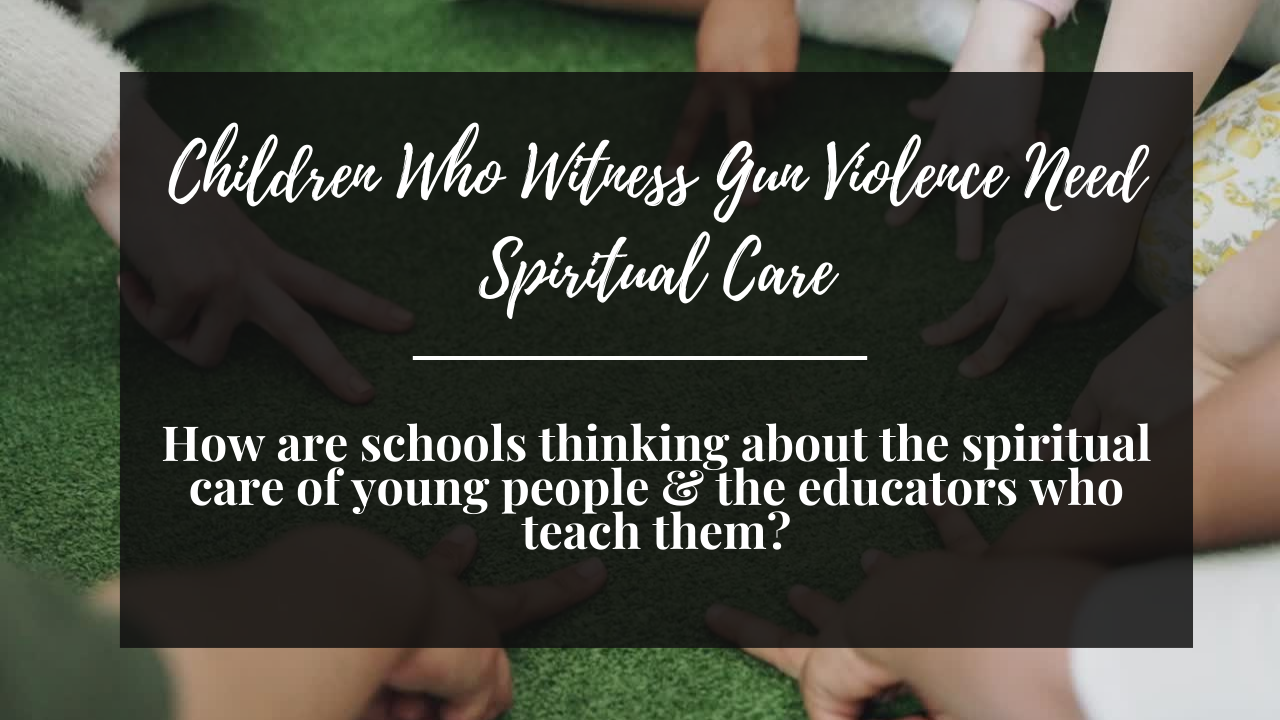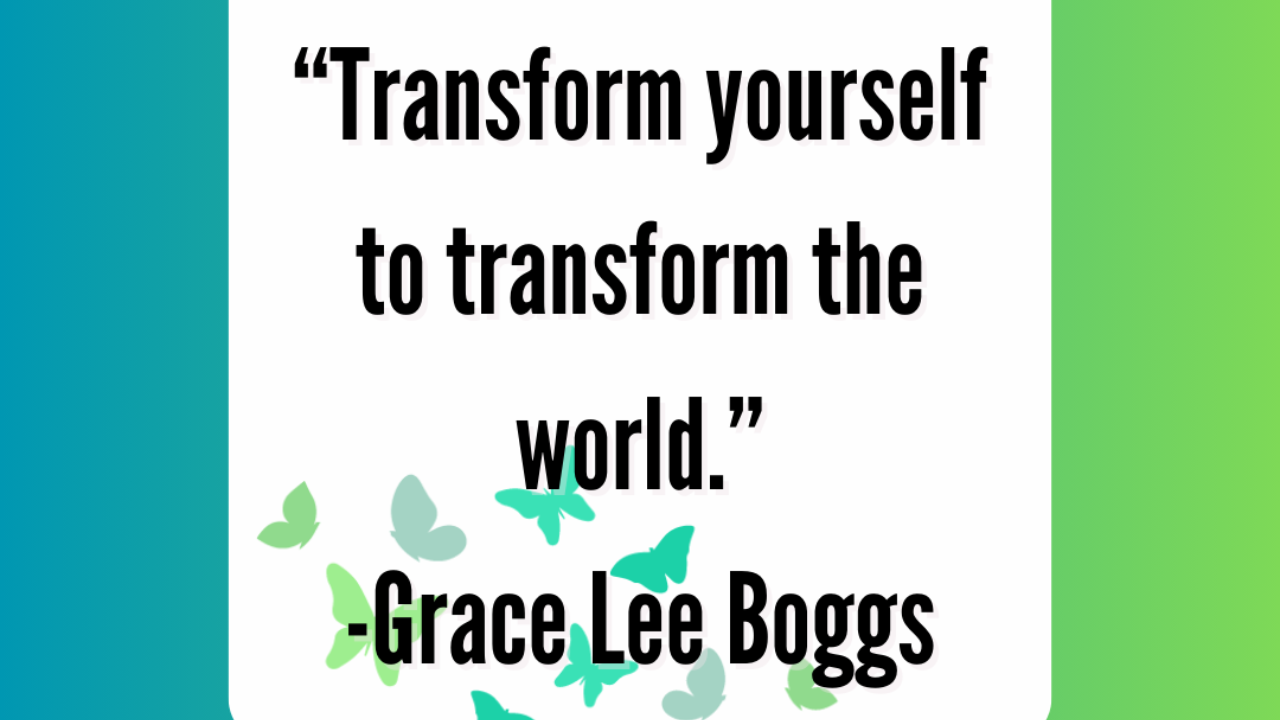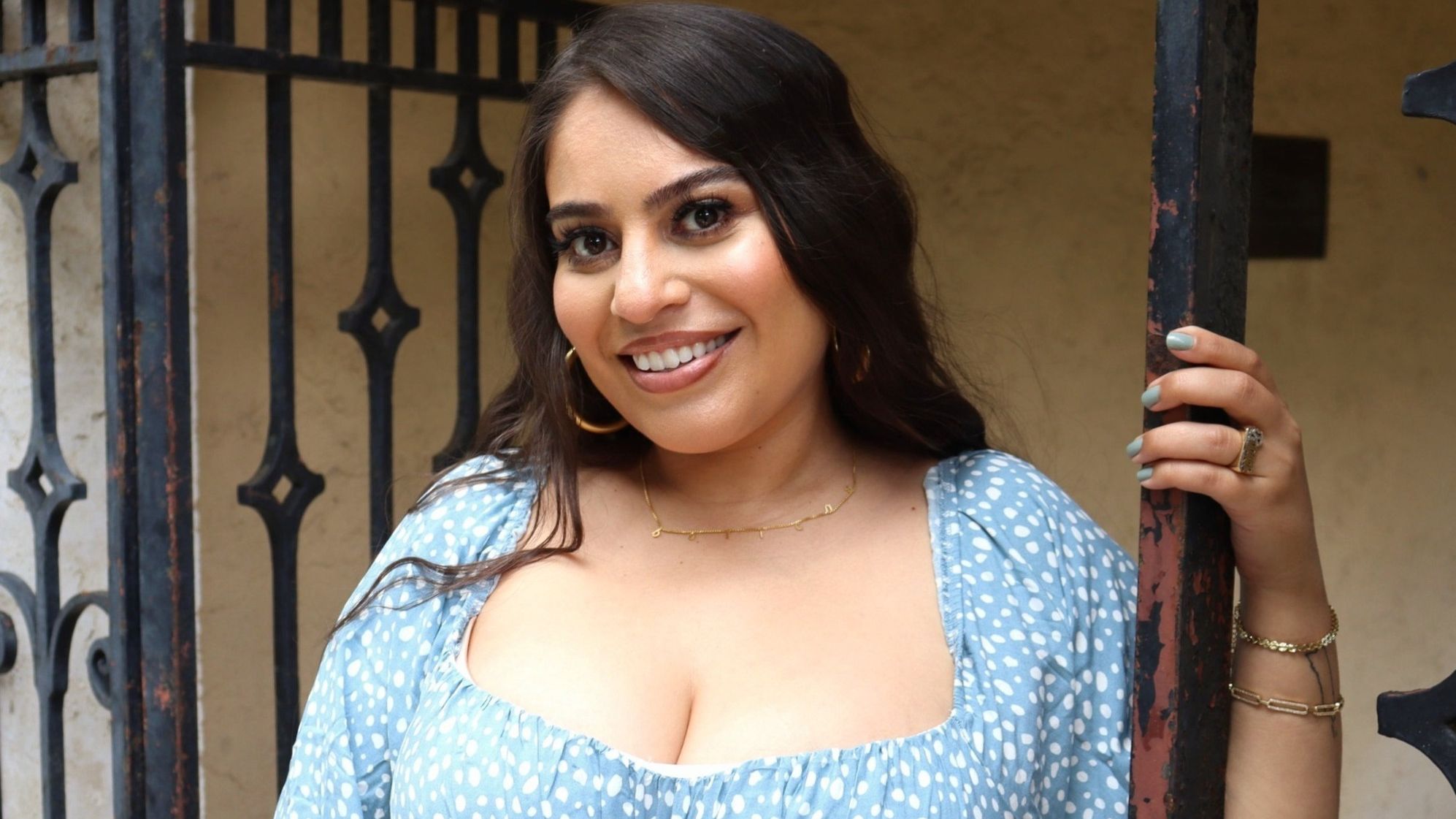News & Insights
Rests & Resets: Reflections from our CEO

Whew, where has the time gone? Summer break is over, and schools have opened across the country. Amidst the excitement and some trepidation, we all have returned to classrooms with mixed feelings. Usually, The Institute would have sent newsletters, posted on social media, or sent resources at the beginning of this month, especially during, yet again, another school shooting. This school year begins a bit slower for us here at The Institute because I am trying to figure out how we can return.
I took an unapologetic summer sabbatical for the first time since The Institute was founded, meaning I did nothing from June through August. It was beautiful. There was simply silence, stillness. The summer came and wrapped me in rest.
On July 2nd, the Institute celebrated four years of community work and education transformation. As the one who simply helps to guide the vision of the Institute, it has been an honor to do this work for four years, but it has not been easy. There have been so many...
A Glossary of Love: Wisdom from our Creating Loving Schools for Black Students Panelists
Hello All,
Thank you to those who tuned into our Creating Loving Schools for Black Students Panel.
So much wisdom was shared from/by/with our panelists, and we want to reflect on the intention of language as the infrastructure of freedom in space.
Community: people with whom “we want the same things” (Fatema Elbakoury); beings who co-create and co-imagine a different world; “happens when I make your problem my problem” (Bobby Morgan)
Family: not just those with whom we share blood, but our relations “anthropologically, in the fictive sense” (Cecil Barnes)
Restorative Practices: “know[ing] that the [busted] floors didn’t come that way themselves…knowing that with the right type of treatment, the right type of care, and the right type of energy, what they could be– if given the chance...to know how to love it, serve it, care for it” (Bobby Morgan)
Rigor: “this is hard; that’s why we keep going” (Fatema Elbakoury)
Democracy: “People who are administrator...
The Threat of Black History
Hello All,
How is your breathing?
As we enter Black History and Futures Month, we root ourselves in history and imagine and co-create futures.
Black History Month founder Carter G. Woodson spoke of Black history:
“What we need is not a history of selected races or nations, but the history of the world void of national bias, race hate, and religious prejudice.”
Woodson was both commenting on history and imagining a future where history was free of racism. Without an understanding of history, one’s lineage and truth are erased.
Ibram X. Kendi wrote: “One of the reasons they are banning antiracist history books is because they don't want people to learn how they constructed racism.
Because the more we learn how they constructed racism, the more we learn how to deconstruct it and build equitable and just and democratic societies for all people. The more we build equitable and just and democratic societies, the more people of color resist their racist efforts to take us back and the...
Backlash and Misogynoir
Hello All,
How are you breathing today?
How are you navigating the backlash, the unmasking, of white supremacy in our schools?
What does it mean that school districts are rolling back anti-racism resolutions? How can we hold the disappointment and rage at vile misogynoir forcing Dr. Claudine Gay to resign as Harvard’s shortest-tenured president?
We have experienced these cycles before, from Jim Crow as a response to Reconstruction to anti-feminist backlash. That doesn’t make them less painful, though. We see the pretext. We know the subtext. Nikole Hannah-Jones warned: “Academic freedom is under attack. Racial justice programs are under attack. Black women will be made to pay.”
In her own words, Dr. Gay said:
It is not lost on me that I make an ideal canvas for projecting every anxiety about the generational and demographic changes unfolding on American campuses: a Black woman selected to lead a storied institution. Someone who views diversity as a source of institutional str...
In Conversation with Adriene Mishler

We are absolutely thrilled to be in community with Adriene Mishler, an actor, artist, teacher, writer, co-founder of Yoga with Adriene and CEO of Find What Feels Good.
Who are you? Who is your community and how do they love you?
"My parents named me Adriene. I am a daughter, an artist, an activist and lover. I am a student, a teacher, a role model, and a listener. I am a granddaughter, una sobrina, una prima and this year, una novia! I am a friend. I believe my parents passed down a passion for creativity and service and it is through those paths that I have found belonging in a group, belonging in the ensemble, belonging in community. My community includes the devoted and diverse, the disciplined and undefinable. We show up to create and we show up for practice as individuals and in connection from all over the globe. My community loves me by showing up for themselves to be truthful and present, for our community is centered around the principle that your well-being is my well-be...
Everything Dehumanizing About This Week (Starting with Thanksgiving) and How We Freedom Dream
This is quite the week. A week of celebrating a whitewashed nationalistic history that erases Native genocide in the United States. A week that appropriates Native foodways as “American traditions.” A week that offers a transactional view of “gratitude” rooted in pity and isolation instead of true interconnectedness. A week that emphasizes consumption and false scarcity through Black Friday (which starts, confusingly, on Thursday or even before?) An urge to spend, an urge to numb, an urge to hoard. A week of continued grieving for our relatives in Gaza. A week of continuing to fight antisemitism, Islamophobia, anti-Blackness, ableism, and transphobia and transmisia.
And this is a week that extends into another week of shopping and of guilt-giving (and guilt provocation). As a 501c3 organization, we are both skeptical of Giving Tuesday and enmeshed within it.
In The Revolution Will Not Be Funded: Beyond the Non-Profit Industrial Complex*, INCITE! writes:
Dylan Rodriguez defines t...
History, Heritage, and Awareness Celebrations
Our approach to anti-racist education is one beyond heroes and holidays (remember our reflections on Black History Month?). In Eating the Other: Desire and Resistance, bell hooks critiques this extractive approach to multiculturalism: “The commodification of Otherness has been so successful because it is offered as a new delight, more intense, more satisfying than normal ways of doing and feeling. Within commodity culture, ethnicity becomes spice, seasoning that can liven up the dull dish that is mainstream white culture.”
That said, we also know the power of building energy and awareness around an identity, community, or issue throughout an officially acknowledged month. It can also be a way to hold our communities accountable. How can we leverage these months for dialogue and action?
We offer questions and resources for further exploration and honoring of these months.
Earth Month
- How can we illuminate the ways we are connected to, and a part of the earth?
- (Re)connecting to...
Children Who Witness Gun Violence Need Spiritual Care

After voting at my local elementary school on Tuesday, I was walking to my car when there was a drive-by shooting in the area. The screams of children running to safety will forever live burned in my memories. My heart broke for them.
I wondered how teachers, students, administrators, and staff responded to the incident. How did they care for students and themselves? Did students have places to process? Did the adults have a place to process? Did they go back to business as usual?
As an adult, I read about the effects and impacts of trauma, and even I struggled to process what happened. I could not get back to my usual daily rhythm. If I was struggling, I could only imagine what those children were feeling….
Often, when we talk about gun violence and schools, we focus on school shooters. But what about the moments when students witness gun violence within their communities? Where is their refuge?
When schools lean into the toxic tropes that Black & Latine children are “extraordi...
Beyond the Bare Minimum - Keep Growing and Transforming

Hello All,
How are you breathing today?
As we enter October, we are reflecting on the simultaneous reach of our liberation work (we have over 22K followers on instagram!) and on the limitations of our work (schools and individuals are “turning their priorities elsewhere”). This first truth actually fuels the second one. Many people, especially white school leaders, want to check a box, consume (palatable) anti-racist resources, and move on to “higher” priorities. Our use of parentheses and quotes should indicate our skepticism. True liberation and transformation comes from the root, not from appearances. True liberation and transformation requires shifts of deeply entrenched power dynamics.
Black and Brown people, especially Black and Brown women and femmes, have been working towards liberation across generations. We invoke Audre Lorde, in her “The Uses of Anger” keynote: “My response to racism is anger. I have lived with that anger, ignoring it, feeding upon it, learning to use i...
In Conversation with Raquel Reichard

We are absolutely thrilled to be in community with Raquel Reichard, an award-winning journalist, author, editor, producer, community-builder and key voice in Latina storytelling. Her book, Self-Care for Latinas, comes out in December 2023! Please pre-order now!
Who are you? Who is your community and how do they love you?
I’m an Orlando-based, Puerto Rican journalist, editor, producer, and author who tells stories about Latine culture, body politics, and music, exploring themes of bodily autonomy, colonialism, diasporic belonging, and wellness. I’m an aunt, a daughter, a sister, and a friend. My community exists physically, spiritually, and virtually, and it’s made up of family and friends who love, care, challenge, and enliven me by simply existing as their most genuine selves.
You have had an incredible career as a writer, creator, and producer. What has been your biggest learning or unlearning in the storytelling field?
There have been so many learnings and unlearnings. I th...

